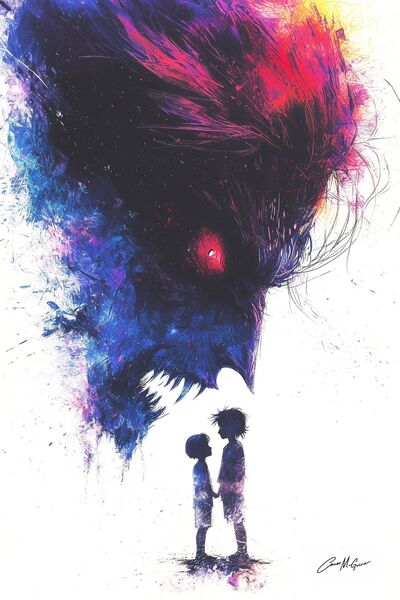A family affair that is both sad and sordid

Erik Menendez (left) and his brother Lyle listen during a pre-trial hearing on December 29, 1992, in Los Angeles after the two pleaded innocent in the August 1989 shotgun deaths of their wealthy parents, Jose and Mary Louise Menendez of Beverly Hills, Calif. Picture: Vince Bucci/AFP via Getty Images
In the pantheon of true crime retellings, Ryan Murphy's latest opus, , sits like a flashy, overwrought centrepiece - impossible to ignore yet equally impossible to digest without a strong constitution and a hefty pinch of salt. I watched it over several nights, averaging two episodes per sitting, tempted to binge to three, but I wanted to savour the extended viewing, so I exercised a little self-discipline.
Murphy, television's reigning purveyor of camp and controversy, has once again dipped his manicured hands into the bloody well of America's most notorious killers. This time, he's hauled up the sordid tale of the Menendez brothers, those photogenic patricides who shocked Beverly Hills and titillated tabloid readers back in 1989 with their grisly disposal of dear old mum and dad.
The story, spread across nine episodes, is a gratifying soap opera, oscillating wildly between grave solemnity and titillating sensationalism. We're subjected to harrowing accounts of abuse, which are undermined in the next frame by Nathan Lane chewing scenery as if it were made of marzipan. It's certainly a rollercoaster, but it leaves the viewer undecided and emotionally whiplashed.
Nicholas Alexander Chavez and Cooper Koch, as Lyle and Erik Menendez, are at the heart of this malevolent bullet fest. They deliver accomplished and revelatory performances, especially Koch's singular tour de force in the fifth episode. The intensity of the measured study of raw emotion is almost pornographic, prompting one to question the appropriateness of making such private pain so public.
As the monstrous patriarch José Menendez, Javier Bardem brings his considerable gravitas to bear on a role that could have easily descended into moustache-twirling villainy. Instead, he crafts a portrait of toxic masculinity, seething under a veneer of respectability that practically oozes from the screen.
Murphy is prone to historical name-dropping, providing context and a disconcerting reminder of the swift passage of time. With cameos from everyone from OJ Simpson to Rodney King, the entire troubled zeitgeist of early '90s Los Angeles inserts itself into every frame, resulting in a narrative that feels briefly shoved aside by tangential events.
By its very nature, the series grapples with weighty themes - the cyclical nature of abuse, the corrosive effects of excess money and privilege, and the systematic corruption of America's justice system - but the main plotline prevents a nuanced exploration of these themes.
Like the Menendez brothers themselves, this series is a product of indulgence and ambition. In its homage to 1990s' style, it presents a glittering, grotesque spectacle that demands attention but may leave you feeling slightly grubby for having watched it.
In the pantheon of true crime adaptations, represents Murphy's particular brand of visual and emotional excess. Similar to its subjects, its audacity will likely leave a lasting impression.
The show's historical accuracy, while broadly faithful to the known facts of the case, often takes a backseat to dramatic licence. Even when the events depicted are true, the series' penchant for heightened reality calls into question their veracity due to their flamboyant flair. The portrayal of the brothers' relationship gives considerable licence, veering voyeuristically into territory that feels more speculative than factual.
The cultural references sprinkled throughout the series serve as both a strength and a weakness. With outstanding skill, they effectively transport the viewer back to the late '80s and early '90s, creating a vivid sense of time and place. The meticulously crafted costumes, music, and set design provide a nostalgic feast for the senses. However, they are sometimes heavy-handed, as if the director had a checklist of iconic '80s and '90s cultural highlights, forcibly integrating them into the narrative.

One of the most striking aspects of is examining monied privilege and corrupting influence. The Menendez family's first generational wealth turned prematurely toxic, shielding the twins from reality but also fostering a lethal environment of entitlement and abuse.
The series' treatment of the abuse allegations at the heart of the Menendez case is both contentious and frustrating. While it gives voice to the brothers' claims of sexual and emotional abuse, it also fosters reasonable doubt, never fully committing to one narrative over another. This ambiguity leaves viewers with many unanswered questions, but it does reflect the complex and contested nature of the real-life case.
The performances across the board are spellbinding, with Chavez and Koch as undeniable stars in the making. Their portrayals of Lyle and Erik Menendez are accomplished and multi-layered, exploring both the ghastly bravado of privileged brats and the deep-seated trauma that allegedly drove them to murder. Bardem's José Menendez projects a menacing presence, at once charismatic and terrifying, while Chloë Sevigny brings a spiky fragility to the role of Kitty Menendez that hints at the simmering dysfunction lurking beneath the family's polished exterior.
While occasionally indulgent, the direction and script are masterful in creating tension and atmosphere. The murder scene itself, repeated from different perspectives, is a masterclass in sustained horror, made all the more bone-chilling by our knowledge that it's based on actual events. While compressed for dramatic effect, the courtroom scenes crackle with energy, as do the theatrical elements of real-life drama.
One of the series' strengths is its willingness to engage with the broader societal issues surrounding the case. It touches on themes of media sensationalism, the flaws in the American justice system, and the public's insatiable appetite for true crime stories. It holds up a cracked mirror to our unending appetite for the gruesome and obscene, forcing us to consider our complicity in the commodification of real-life tragedy.
This broader focus necessarily comes at the expense of more profound character development. We get glimpses into the fractured psyches of Lyle and Erik. Yet, this lurid spectacle leaves us sensing that the series is more interested in the spectacle of their crimes and trials than in truly understanding them as complex individuals. This is undoubtedly a pitfall of the true crime genre, but it feels particularly pronounced in a series that purports to offer a definitive account of a still controversial case.
The pacing of is uneven, with some episodes feeling rushed while others drag. The decision to devote an entire episode to Erik's monologue about the abuse he suffered is bold and powerful, but it also disrupts the narrative flow in a way that may alienate some viewers. Similarly, the final episodes' focus on the trial feels anticlimactic after the intense build-up of the earlier instalments.
The series captivates viewers. While frustrating in its ambivalence, it is thoroughly enjoyable. It's a challenging, often uncomfortable viewing experience that forces us to confront difficult questions about flawed justice, dysfunctional families, and the banal nature of evil.
As a piece of television, it's a testament to the production team's skill as storytellers and their ability to assemble top-tier talent in front of and behind the camera. As a cultural work, it's a sad reflection of our ongoing fascination with the gruesome and often unexamined relationship with wealth, celebrity, and violence. Undeniably, it's a series that lingers in the mind long after the final episode, for better or worse. Its depiction of a case and its still-living protagonists will likely spark months of debate and dissection, a testament to its impact if not its artistic merit.
In the often predictable landscape of true crime offerings, stands out for its audacity, surprising performances, and willingness to touch on complex themes. It both illuminates and exploits the tragedy at its core, leaving an unresolved verdict. That doubt is a question each viewer must grapple with, and perhaps that lingering engagement is the ultimate measure of success.




